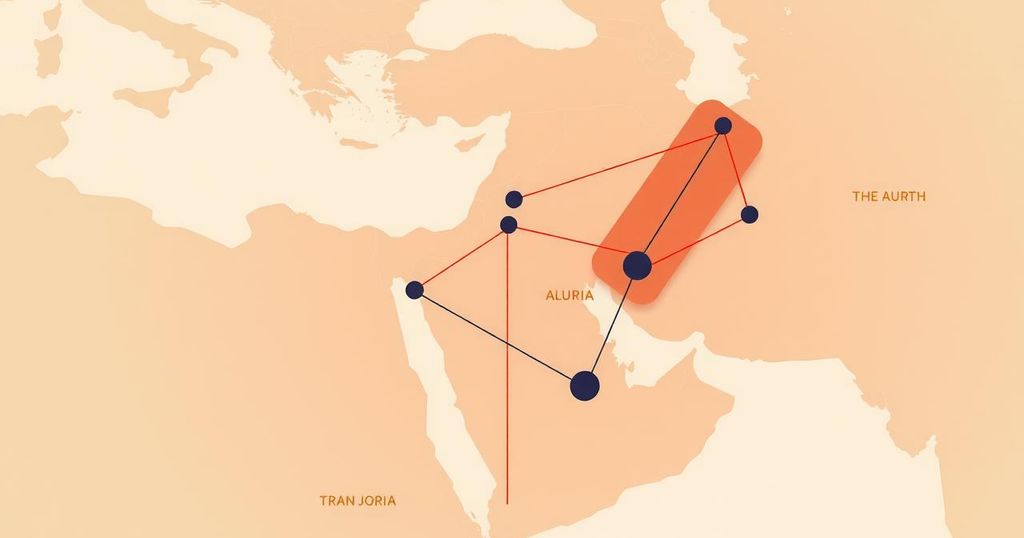Iraq must reassess its role in the Middle East as Syria undergoes significant changes following the fall of Assad’s regime. The Iraqi government faces internal and external challenges, including border security threats and the need to recalibrate relations with Iran and the United States. Engaging with the new Syrian leadership is crucial for addressing security concerns as Iraq navigates a complex geopolitical landscape.
As the new Syrian political landscape emerges, Iraq finds itself at a critical juncture, requiring a reassessment of its regional role. The fall of President Bashar al-Assad’s regime has disrupted the influence corridor linking Iran, Syria, and Lebanon, providing Iraq the chance to fortify its borders and address internal security concerns. This task is fraught with challenges as Iraq seeks to recalibrate its foreign relations, especially with the United States, amidst the evolving situation in Syria.
Historically, the Assad regime contributed to instability in Iraq, particularly following the 2003 U.S. invasion, which led to an influx of terrorist groups into Iraqi territory. This resulted in widespread violence, prompting the Iraqi government to condemn Assad’s actions and seek international accountability through the United Nations. However, the dynamics shifted post-2011 with the Syrian uprising, forcing Iraq to adopt a more pragmatic stance towards Assad as new threats emerged from various terrorist factions.
With Assad’s position weakened, Iraq faces heightened vulnerabilities, particularly concerning the new Syrian leadership. Iraq cannot overlook the potential threats that may arise from its 372-mile border with Syria, especially from militant factions operating within ungoverned areas. The collapse of the U.S.-backed Syrian Democratic Forces could exacerbate the situation, endangering Iraq’s security and the safety of thousands of detainees, many of whom are Iraqi nationals.
Iraqi Prime Minister Mohammed Shia’ Al-Sudani has proactively addressed these threats by engaging with the new Syrian government on security issues. His recent diplomatic visits, including a meeting with regional counterparts, signal Iraq’s intent to foster cooperation and tackle security challenges collaboratively. However, the ultimate responsibility for ensuring security now rests with the Syrian leadership in light of Iraq’s ongoing vulnerabilities.
In the coming months, Iraq must navigate its extensive border with Syria, dealing with numerous hostile groups operating unchecked. Enhanced border security will be paramount, but the nature of the threat will depend on Syria’s trajectory toward stability or continued conflict. The Iraqi leadership will also confront internal and external pressures, particularly from Iran, which may seek to reestablish its influence in Iraq following Assad’s diminished power.
The geopolitical landscape in the Middle East, particularly involving Iraq and Syria, is undergoing significant changes following the fall of Bashar al-Assad. This transition presents both risks and opportunities for Iraq, which must assess its security posture in a region rife with instability. Relations with Iran, the United States, and the new Syrian leadership will be critical as Iraq confronts a plethora of challenges, including border security and internal political dynamics. This situation necessitates a careful recalibration of Iraq’s foreign policy and national security strategies.
In summary, Iraq stands at a pivotal crossroads, necessitating a comprehensive reassessment of its role in the Middle East following recent developments in Syria. The need for enhanced border security and effective counter-terrorism strategies is evident, particularly as Iraq seeks to navigate complex relationships with regional powers and safeguard its national interests. Successful navigation of these challenges will be crucial for Iraq’s stability and security in the dynamic geopolitical landscape of the Middle East.
Original Source: www.atlanticcouncil.org






